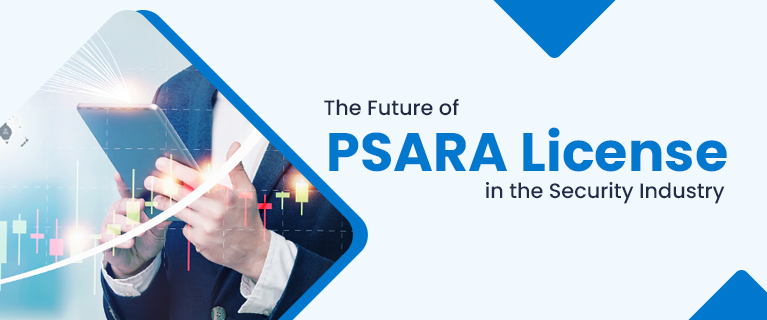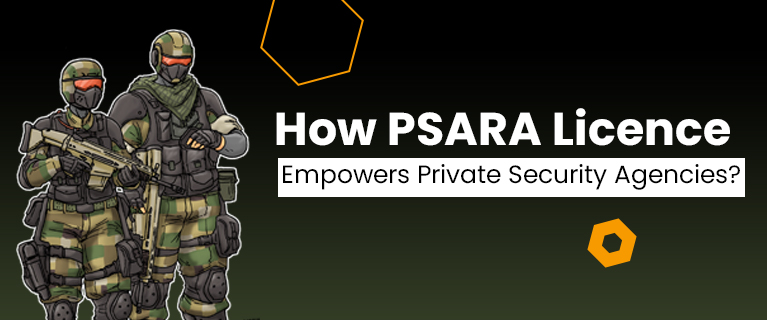How can you Register for a PSARA License?
The Private Security Agencies Regulation Act (PSARA) License is a legal authorization required for individuals or entities operating private security agencies in India. Enacted in 2005, the PSARA aims to regulate and govern the functioning of private security service providers to ensure the safety and well-being of citizens, clients, and the nation at large. This license is mandatory for any entity engaged in providing security services, including manned guarding, electronic surveillance, security consulting, and more.
The PSARA License serves as a crucial framework to monitor and control the activities of private security agencies, ensuring their operations align with legal and ethical standards. It seeks to professionalize the security sector by mandating specific requirements, qualifications, and procedures for obtaining the license.
Under the PSARA regime, security agencies are subjected to stringent background checks and verification to assess the integrity, competence, and credibility of their directors, partners, and key personnel. The license issuance process involves thorough scrutiny of the agency's infrastructure, training facilities, financial stability, and compliance with the law.
Read also this -: Benefits of Acquiring a Security Guard LicenseHow to Register for PSARA License:
1. Eligibility Check: Ensure that your security agency meets the eligibility criteria set by the Private Security Agencies Regulation Act (PSARA), which includes a minimum capital requirement, infrastructure, and a clear track record.
2. Company Formation: Register your security agency as a legal entity under the appropriate business structure, such as a sole proprietorship, partnership, limited liability partnership (LLP), or private limited company.
3. Documentation: Prepare the necessary documents, including the application form for PSARA License, affidavits, consent letters from partners or directors, financial documents, and proof of identity and address of the directors or partners.
4. Application Submission: Submit the completed application form along with the required documents to the respective state's controlling authority or the Ministry of Home Affairs (MHA) for processing.
5. Background Verification: Undergo background checks and verification of the company's directors, partners, and key personnel involved in security services.
6. Security Deposit: Pay the prescribed security deposit as per the state's regulations. The deposit is typically a bank guarantee that ensures compliance with PSARA provisions.
7. Site Inspection: The controlling authority may conduct a site inspection to assess the agency's infrastructure, training facilities, and compliance with PSARA guidelines.
8. Approval and Issuance: Upon successful verification and inspection, the controlling authority will grant the PSARA License, enabling your security agency to legally operate.
9. Renewal: PSARA Licenses are usually valid for a specific duration, after which they need to be renewed as per the state's regulations.
Read also this -: Unlocking the Power of PSARA Security LicenceBy obtaining a PSARA License, security agencies contribute to a safer and more secure environment for citizens, businesses, and institutions. It helps maintain the integrity of the security industry by weeding out unscrupulous operators and fostering accountability and professionalism among legitimate players. Additionally, the license empowers private security agencies to collaborate with law enforcement authorities, further enhancing public safety and national security.
In essence, the PSARA License is a critical tool that not only ensures the lawful operation of private security agencies but also upholds the principles of safety, reliability, and integrity that are paramount in the security service industry.




Comments
Post a Comment